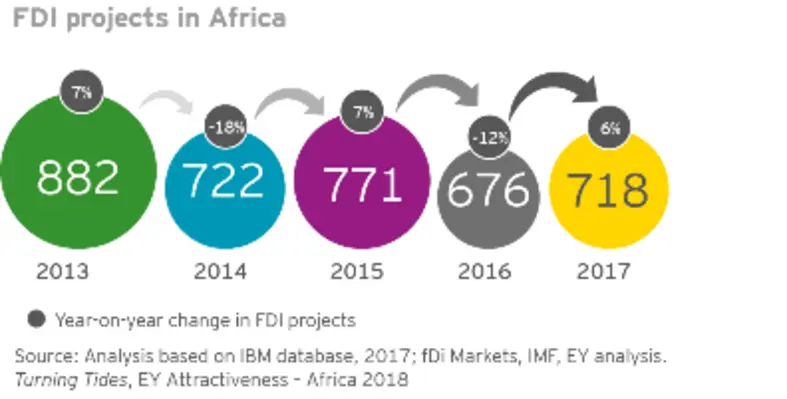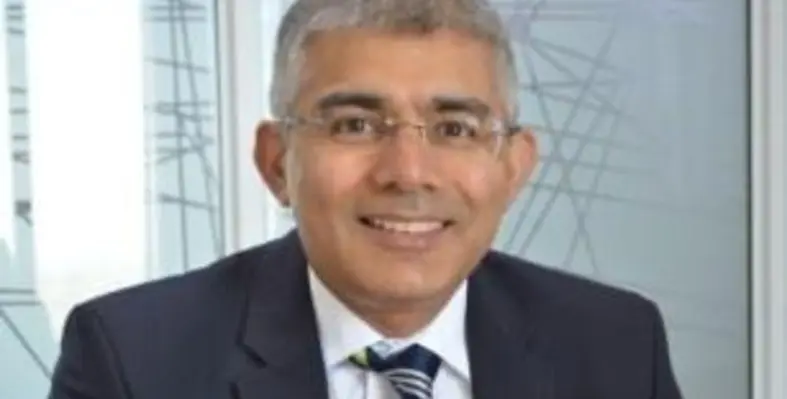South Africa shares the title of largest African Foreign Domestic Investment (FDI) hub with Morocco in 2017, according to a report released by Ernest and Young Global (EY)
According to EY’s latest Africa Attractiveness report, FDI was up across the continent last year, although South Africa experienced a fall in project numbers, on the back of continued weak domestic growth.
The EY 2018 report, ‘Turning tides’, shows that Africa attracted 718 FDI projects which are up 6 per cent from the previous year.
This was in line with a recovery in the continent’s economic growth, following a difficult preceding year.
The higher project numbers were driven by interest in ‘next generation’ sectors, namely manufacturing, infrastructure and power generation. Despite the rise in FDI, project numbers remain below the 10-year average of 784 projects (per annum), it added.
Ajen Sita, EY Africa CEO, said, “2017 was in many respects a key year for the continent. We saw multiple changes in leadership across a number of countries, including South Africa, Zimbabwe and Angola.”

“In addition, Kenya’s election was drawn out which created uncertainty at the time. Changes in leadership have in turn led to a renewed urgency to implement fresh policies as new administrations move to address slow economic growth,” he added.
The report found that South Africa, Morocco, Kenya, Nigeria and Ethiopia were the dominant anchor economies within their respective regions, collectively accounting for 40 per cent of the continent’s total FDI projects.
“Over time and as Africa’s growth accelerates, we anticipate that South Africa’s share of inbound FDI will continue to decline, relative to the rest of the continent. This will be driven by sustained strong growth, particularly in the Eastern-hub economies, and revived growth in the West hub. It illustrates the need for South Africa to ensure its leading economic role across the continent is sustained,” noted Sita.
“By focusing on improving public sector efficiencies and finances, minimising bureaucratic processes and partnering with the private sector on major projects, more countries can stimulate much needed FDI. In addition, they should continue to focus attention on increasing their scores on the ease of doing business and global competitiveness rankings," concluded Sita.












